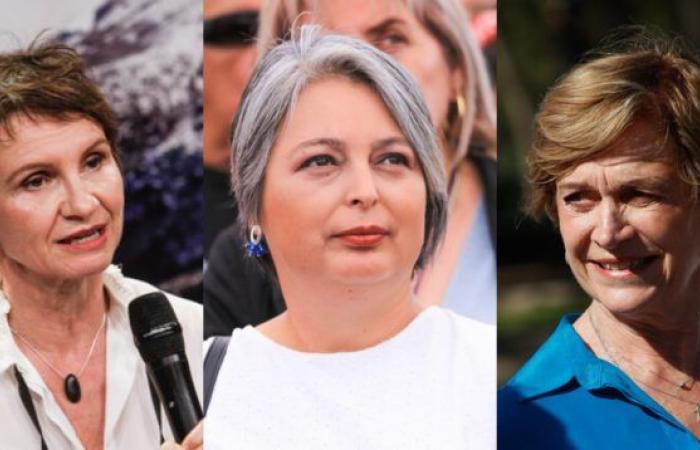The delivery of the final report of the commission for Peace and Understanding President Gabriel Buric not only reopened the debate on how to address the conflict in the so -called South Macrozone, but also lit a crossing of statements between the main presidential candidates: Carolina Tohá (PPD, PS, PL and PR), Evelyn Matthei (Chile Vamos) and Jeannette Jara (PC) of the tones that will mark the race towards the currency.
In parallel, Matthei, who was located both by Tohá and Jara, had to moderate his criticisms of the proposals generated by the Commission. He had said that “it is absolutely impossible for any kind of understanding if there is no explicit recognition that there has been terrorism” and said that “the delivery of land does not necessarily bring peace.”
But after finishing its exhibition in the Cycle Presidential Dialogues, organized by the Infocap Foundation, the flag bearer of Chile Vamos returned to address the definitions of the Commission that integrated and led Alfredo Moreno, former minister of the two governments of Sebastián Piñera and for whom “this can be resolved”.
It is worth mentioning that the report had as prelude to the rejection that, in principle, announced right -wing leaders, mainly the UDI, and that motivated the absence of the presidents of parties of the sector to this Tuesday in La Moneda.
From the ruling party, Tohá valued the presentation of the report as a step in the right direction and took advantage of summon complex”.
The former minister of the interior went further and pointed directly to Matthei, ensuring that she valued her apparent change of tone. He said that it seems “good that in the last statements, Evelyn Matthei has backed up regarding what she said days ago, that it was practically to take the floor to this agreement, because that approach she had was more or less the same line as what Mr. Llaitul said.”
-The latter, in allusion to the column of the CAM leader, Héctor Llaitul, who wrote from prison a column published by Radio Biobío in which he argued that “this new commission constitutes a true farce, a new tongo.”
From the Communist Party, also the presidential candidate Jeannette Jara hardly questioned the presidents of the right and not only Matthei. “A rather transverse effort has been made. I regret that (José Antonio) Kast, (Johannes) Kaiser and (Evelyn) Matthei, without proposals and without having yet known the content of the agreement, yesterday they have come out to oppose it. What is the alternative? What does the disagree continue here?
The former minister of work, in addition, denounced that the opposition seeks to “make a political point” at the expense of a serious and transversal effort: “I am very close to that, for doing a political point, for generating a breakdown, which because they think that with that they can convince more voters to throw a job so long, so serious and that it has cost so much,” he concluded.
For his part, Evelyn Matthei, then said that “in the first place you have to read the document, we have only known it in the morning, I have been here (in the aforementioned cycle of dialogues), therefore, I have not been able to read it well. The logical, the responsible, is to read it complete.”
Given the divergences within Chile Vamos, Matthei ruled out an eventual internal fracture, ensuring that the differences are legitimate and are not due to electoral calculations, as Alfredo Moreno suggested.
The right -wing games showed divided positions. While the president of the UDI, Guillermo Ramírez, expressed reservations before the recommendations of the report, the Republican party issued a hard statement rejecting its conclusions frontally.






